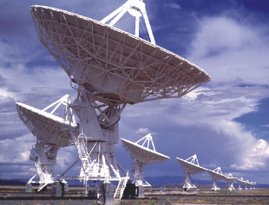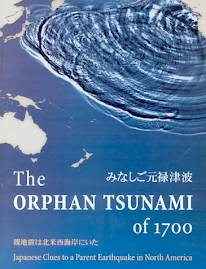
Saturday, January 3, 2009
This goes much deeper than the failure of the financial system
Nearly everything in the world we live in is artificial, made by the hands of humans.
The default condition of humans is unclothed, malnourished, plagued by disease; no electricity, no running water, no sanitation; illiterate, profoundly ignorant, and crushed by the misunderstanding of causalities.
Therefore, the question of management of the world is crucial if we wish to continue to live in this Earthly near-Paradise some of us find ourselves in. Overregulation is suffocating and silly. But as we have seen, no regulation is a disaster even for the Reaganites and Thatcherites who foisted their ideas on everyone (and who called everyone who opposed them stupid while they were at it). Between "all" and "none" there is a Shangri-La of moderation, ever-shifting though it may be.
What is really being played out now is the question of whether ideology is a good guide for how to run the world.
In science, one of the most dangerous things is the plausible just-so story that turns out to be plain, flat-out wrong. It took humans a very long time to learn how to notice conceptual errors and how to discard them. This is why application of scientific methods did not happen in a substantial way in our everyday lives until just the last few hundred years.
http://www.salon.com/tech/feature/2009/01/02/economy_2008/
2008 was a very bad year for ordinary Americans in real, cash-on-the-barrelhead terms. But it was also an awful year for market fundamentalists, deregulators, supply-siders and acolytes of Milton Friedman and Ayn Rand. Their three-decade-long party is over.
... there is no ignoring the sacred cow that lies gutted, innards steaming, on the altar. In 2008, we witnessed a market failure of epic proportions. Whatever moral authority the deregulators thought they might have had -- that sense of superiority that came from the calm confidence that their interpretation of how the world works is the correct one -- is gone. Politics will not be the same for a generation.
The story of how a particular kind of mortgage loan proved to be the undoing of Wall Street and the catalyst for the end of a period of sustained global economic growth is at once insanely complex and, by now, almost too familiar. We now know that dereliction of duty ran rampant at every step of the chain. Mortgage borrowers lied about their income. Mortgage lenders failed to check the credit-worthiness of borrowers. Banks restructured loans into derivative instruments that obscured the underlying liabilities. Credit rating agencies -- dependent on fees from the very institutions whose products they were supposed to be judging -- gave the newfangled securities gold-plated ratings. Government regulators looked the other way. We now know that the incentives built into the system encouraged every individual actor to act in defiance of economic rationality.
We now know, in other words, that left to themselves, economic actors do not pursue rational, sustainable courses of action. Greed and self-interest will steer you into the ditch every time.
... If there is one lesson to take from 2008 it is that the majority of analysts, economists and Wall Street financiers were flat-out wrong. Instead of redistributing risk to make us safer, they tied the whole world up into such a tightly wound ball of interconnections that when one piece of the system broke, the repercussions spread everywhere, immediately.
--Andrew Leonard
The default condition of humans is unclothed, malnourished, plagued by disease; no electricity, no running water, no sanitation; illiterate, profoundly ignorant, and crushed by the misunderstanding of causalities.
Therefore, the question of management of the world is crucial if we wish to continue to live in this Earthly near-Paradise some of us find ourselves in. Overregulation is suffocating and silly. But as we have seen, no regulation is a disaster even for the Reaganites and Thatcherites who foisted their ideas on everyone (and who called everyone who opposed them stupid while they were at it). Between "all" and "none" there is a Shangri-La of moderation, ever-shifting though it may be.
What is really being played out now is the question of whether ideology is a good guide for how to run the world.
In science, one of the most dangerous things is the plausible just-so story that turns out to be plain, flat-out wrong. It took humans a very long time to learn how to notice conceptual errors and how to discard them. This is why application of scientific methods did not happen in a substantial way in our everyday lives until just the last few hundred years.
http://www.salon.com/tech/feature/2009/01/02/economy_2008/
2008 was a very bad year for ordinary Americans in real, cash-on-the-barrelhead terms. But it was also an awful year for market fundamentalists, deregulators, supply-siders and acolytes of Milton Friedman and Ayn Rand. Their three-decade-long party is over.
... there is no ignoring the sacred cow that lies gutted, innards steaming, on the altar. In 2008, we witnessed a market failure of epic proportions. Whatever moral authority the deregulators thought they might have had -- that sense of superiority that came from the calm confidence that their interpretation of how the world works is the correct one -- is gone. Politics will not be the same for a generation.
The story of how a particular kind of mortgage loan proved to be the undoing of Wall Street and the catalyst for the end of a period of sustained global economic growth is at once insanely complex and, by now, almost too familiar. We now know that dereliction of duty ran rampant at every step of the chain. Mortgage borrowers lied about their income. Mortgage lenders failed to check the credit-worthiness of borrowers. Banks restructured loans into derivative instruments that obscured the underlying liabilities. Credit rating agencies -- dependent on fees from the very institutions whose products they were supposed to be judging -- gave the newfangled securities gold-plated ratings. Government regulators looked the other way. We now know that the incentives built into the system encouraged every individual actor to act in defiance of economic rationality.
We now know, in other words, that left to themselves, economic actors do not pursue rational, sustainable courses of action. Greed and self-interest will steer you into the ditch every time.
... If there is one lesson to take from 2008 it is that the majority of analysts, economists and Wall Street financiers were flat-out wrong. Instead of redistributing risk to make us safer, they tied the whole world up into such a tightly wound ball of interconnections that when one piece of the system broke, the repercussions spread everywhere, immediately.
--Andrew Leonard
Subscribe to:
Post Comments (Atom)

No comments:
Post a Comment